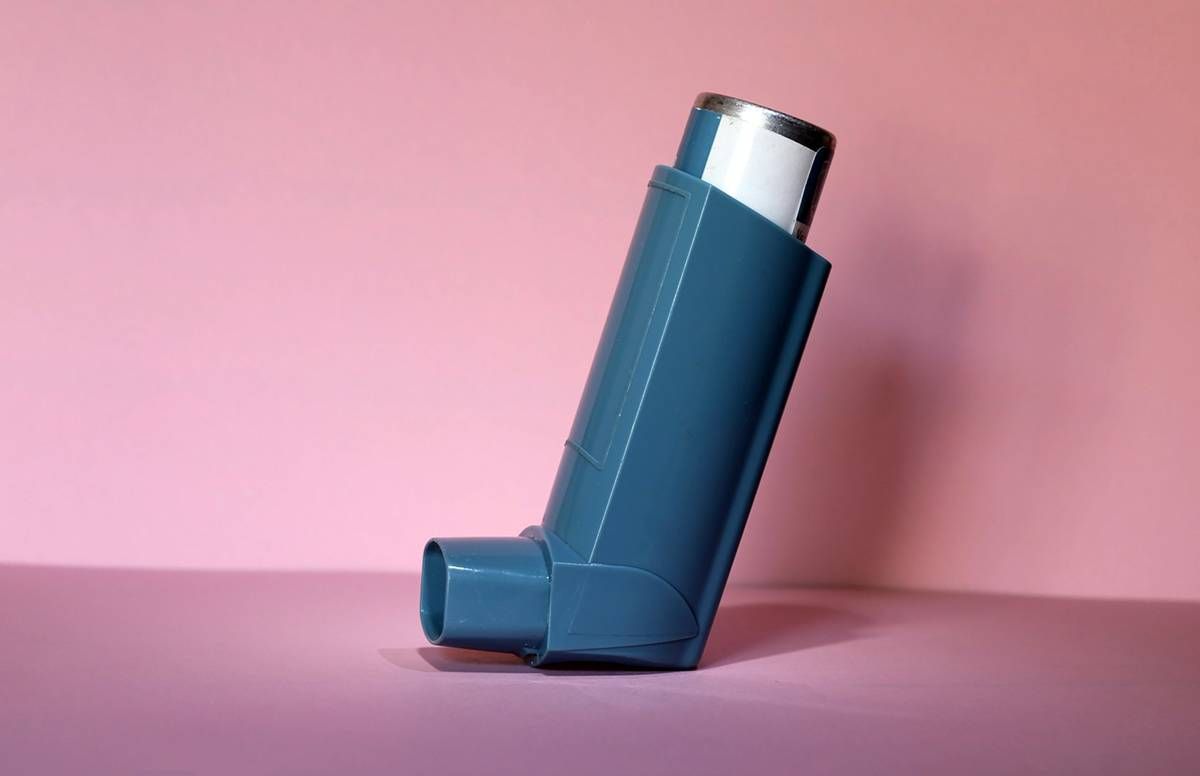Managing Chronic Lung Diseases During the Pandemic
Experts provide specific advice for the most common conditions
Lung diseases take an enormous toll on those who suffer from them in the best of times, let alone during a pandemic. They impact the airway, lung tissue or lung circulation and prevent the lungs from working properly.

Prior to the coronavirus, lung disease was the third leading cause of death in the United States, after heart disease and cancer. Those with lung disease are at especially high risk of complications or death from COVID-19. Among people ill enough to be hospitalized with the virus in March, roughly 35% had an underlying lung disease, according to the Centers for Disease Control (CDC).
Managing your disease properly and understanding potential triggers can help keep you healthier, and hopefully prevent complications. Here's advice for some of the most common lung disorders:
Asthma
With asthma, airways become inflamed, creating mucus and swelling and making it harder to breathe. People with moderate to severe asthma may be at higher risk of hospitalization if they get COVID-19, but preliminary data from New York state suggests asthma isn’t a huge factor in COVID-19 deaths.
"It's more important than ever to stick to your regimen and make sure you don't allow yourself to get sick."
Reduce your risk of asthma attacks by knowing your triggers, like seasonal allergies or strenuous exercise, says Dr. John Mastronarde, a pulmonologist and asthma specialist in Portland, Ore. He advises using your inhaler and other medication consistently, even if you’re feeling well.
“It's more important than ever to stick to your regimen and make sure you don't allow yourself to get sick; prevent it as much as you can by taking your medicines,” he says.
But many people with asthma underestimate their disease and its severity. And they don't use their inhaled steroid medications as regularly as they should.
If you have asthma:
- Have a written plan of action for worsening asthma symptoms and know when to call your doctor. Sooner is better than later, says Mastronarde, even if it’s just a check in to keep tabs on any exacerbations. Many COVID-19 symptoms are similar to asthma symptoms, including cough, sneezing and shortness of breath.
- Talk to your health care provider, insurer and pharmacist about getting a 30- to 90-day emergency supply of prescription medications, including inhalers. Have at least 30 days of non-prescription medications and supplies on hand, too.
- Paradoxically, exercise can actually help with lung function. Exercise as you’re able to, even if it’s just taking a walk.
- If you use a nebulizer, do so in a room without anyone around so you don't expose others to aerosol droplets.
- Try to minimize stress and anxiety, which can trigger or worsen symptoms. Take a walk, meditate or do breathing exercises. Turn off the news or find something fun to watch instead.
Our Commitment to Covering the Coronavirus
We are committed to reliable reporting on the risks of the coronavirus and steps you can take to benefit you, your loved ones and others in your community. Read Next Avenue's Coronavirus Coverage.
Chronic Obstructive Pulmonary Disease
Chronic Obstructive Pulmonary Disease (COPD) is an inflammatory lung disease that obstructs airflow from the lungs. Air tends to get trapped in your lungs, and it's a lot harder for you to blow it out. If you can't get all the air out, it's a lot harder to get the next breath in, according to Dr. Matthew Exline, a pulmonologist and critical care physician, in Columbus, Ohio.
COPD is comprised mainly of two types of lung diseases: chronic bronchitis and emphysema.
Chronic bronchitis is long-term inflammation of the bronchi, the breathing tubes in the lungs. It’s commonly caused by smoking, although air pollution and environmental factors may play a role. Symptoms include a cough (smoker’s cough), coughing up mucus, wheezing and chest discomfort. Lung infections are common.
Emphysema involves loss of elasticity and damage to the air sacs in the lung, which reduces the amount of oxygen in your blood. It causes shortness of breath, and usually begins gradually. So, you can have emphysema for many years before it starts interfering with daily living. Eventually, you’ll be short of breath even while at rest.
“Your lung normally is like a rubber band that stretches out when you take a breath in. And then when you exhale, that rubber band contracts, pushes the air out,” explains Exline, who directs the Medical Intensive Care Unit at Ohio State University Medical Center. “When you have COPD, that rubber band doesn't quite have that elasticity anymore.”
Most people with COPD develop it from smoking, although there are other causes.
People with COPD have about a two-and-a-half times higher risk of serious complications or death if they get COVID-19, says Dr. Frank Sciurba, associate professor of medicine at the University of Pittsburgh School of Medicine and medical director of the Pulmonary Physiology Laboratory at the University of Pittsburgh Medical Center.
If you have COPD, here's how to be extra vigilant now:
- Don’t go into stores if at all possible; try to have food and pharmacy items delivered.
- If you must venture into public spaces, try to limit the number of trips. Always wear a mask.
- Try not to gain weight; being overweight or obese can make lung problems worse.
- Listen to doctors and reliable media sources; take advice of health experts when it comes to guidelines, precautions, testing and social distancing.
- Use a spirometer (a device that measures lung function), do pursed lip breathing or get up and move around frequently to improve oxygen absorption. It keeps the blood moving and helps keep your lungs more open. Exercise is also good for mental health; people with COPD frequently suffer from depression and loneliness.
- Don’t let your situation deteriorate. If you start coughing more or feeling like you're struggling more to breathe, call your doctor. While hesitation to call 911 or go to the hospital is understandable, Sciurba says, you don’t want to wait until your situation becomes so grave that you risk dying at home.
Sleep Apnea
Sleep apnea is not actually a breathing disorder of the lungs, but rather an obstructive disorder of the upper airway — the muscles just don’t work at night and the airway collapses.
The American Academy of Sleep Medicine says there is no evidence linking sleep apnea with coronavirus risk. However, “the biggest concern is the C-PAP equipment (a breathing machine used by people with sleep apnea) and making sure it stays clean and that there's no chance of exposure to anyone with virus coughing on your machine,” says Mastronarde, who is also a sleep medicine specialist. Clean and disinfect your C-PAP equipment regularly according to the manufacturer’s instructions.


